Electric vs Gas Snow Blower: Choosing the Best Option for Winter Snow Removal
As the winter season draws near and the first snowflakes begin to fall, the task of snow removal emerges as a priority for many homeowners. With the advancement of technology, electric vs gas snow blower have become two popular contenders in the battle against the winter whiteout. These powerful machines offer efficient solutions for clearing snow-covered driveways, walkways, and patios. However, the decision between an electric and a gas-powered snow blower involves careful consideration of various factors. In this guide, we will delve into the benefits and drawbacks of each choice to aid in your decision-making choice that best suits your winter snow removal needs.
How do electric snow blowers work?
A two-stroke or four-stroke gasoline engine provides the power for a gas-powered snow shovel. Since two-stroke engines produce more air pollution than four-cycle engines, they are now very uncommonly encountered in snow blowers. The auger paddles that cut through the snow and fling it out of the discharge chute are turned by the engine on a single-stage blower. A two-stage snow blower’s engine drives both the impeller and auger blades, which agitate and blow snow into the output chute.
Along with the main auger and the impeller, a three-stage gas snow blower also contains a smaller auger blade in the middle. Due to their weight and difficulty handling, two- and three-stage gas snow blowers are typically self-propelled with forward and reverse gears. In addition, other features like lights, power steering, or heated handgrips could be powered by the gasoline engine.
Overall, electric snow blowers are well-suited for light to moderate snowfall and are typically more compact and lightweight than gas models, making them easier to maneuver and store. However, their effectiveness can be limited by the length of the power cord and the availability of electrical outlets. To address this limitation, manufacturers offer cordless options with rechargeable batteries for some electric snow blowers, providing greater mobility without sacrificing the convenience of electric power.
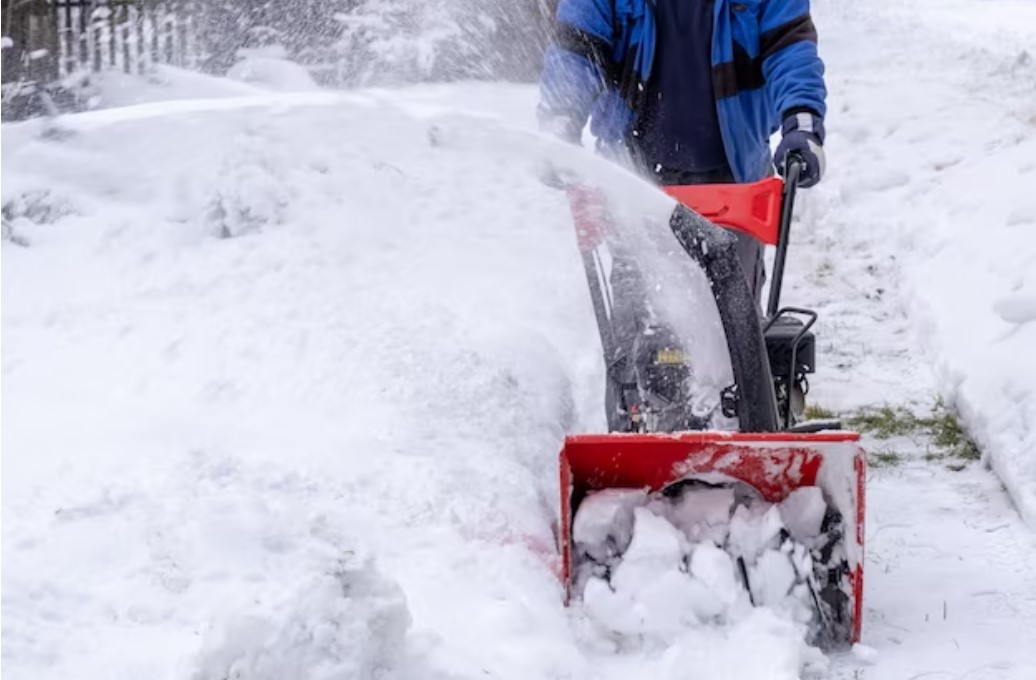
How do gas snow blowers work?
The heart of a gas snow blower is its gasoline-powered engine. This engine operates similarly to those found in cars, utilizing a mixture of gasoline and oil for fuel. When the engine is started using a pull cord or electric starter, it ignites the fuel mixture, creating controlled explosions that generate mechanical energy. This energy drives a crankshaft, which is connected to various components of the snow blower’s mechanism.
Two-stage cordless snow blowers are self-propelled, just like gas snow blowers, even though the battery packs may only last for a few hours before needing to be recharged. If you use a cordless snow blower, you won’t have to worry about unintentionally tripping over a power wire.
Gas snow blowers are typically larger and more powerful than electric models, making them well-suited for heavy-duty snow removal tasks and larger areas. However, their operation is accompanied by noise and emissions due to the combustion process. Regular maintenance, including oil changes and fuel stabilizer use, is necessary to ensure the engine’s optimal performance and longevity.

Electric Vs Gas Snow Blowers: Differences Compared
Similar to the page on snow blowers vs. snow throwers, this one emphasizes the gas vs. electric component of the designs rather than the number of stages. Anyway, let’s delve deeper and discover the fundamental distinctions as well as advantages and disadvantages of both the electric and gas variants.
Here, we’ll determine whether electric snow blowers are suitable for your needs or whether you ought to spend your money on a powerful gas snowblower instead.
Ease of Use & Starting Up
Electric snow blowers take the lead in terms of ease of use and starting up. They typically feature push-button start mechanisms, eliminating the need for strenuous pull-starting that is common with gas-powered blowers. Electric models are user-friendly and suitable for individuals of all ages, making them a favorable option for those seeking simplicity and convenience.
Maneuverability
When it comes to maneuverability, electric snow blowers excel due to their lightweight design. They are easier to handle and navigate, making them a suitable choice for individuals with limited physical strength. In contrast, gas-powered snow blowers tend to be bulkier and heavier, requiring more effort to maneuver effectively, especially in tight spaces.
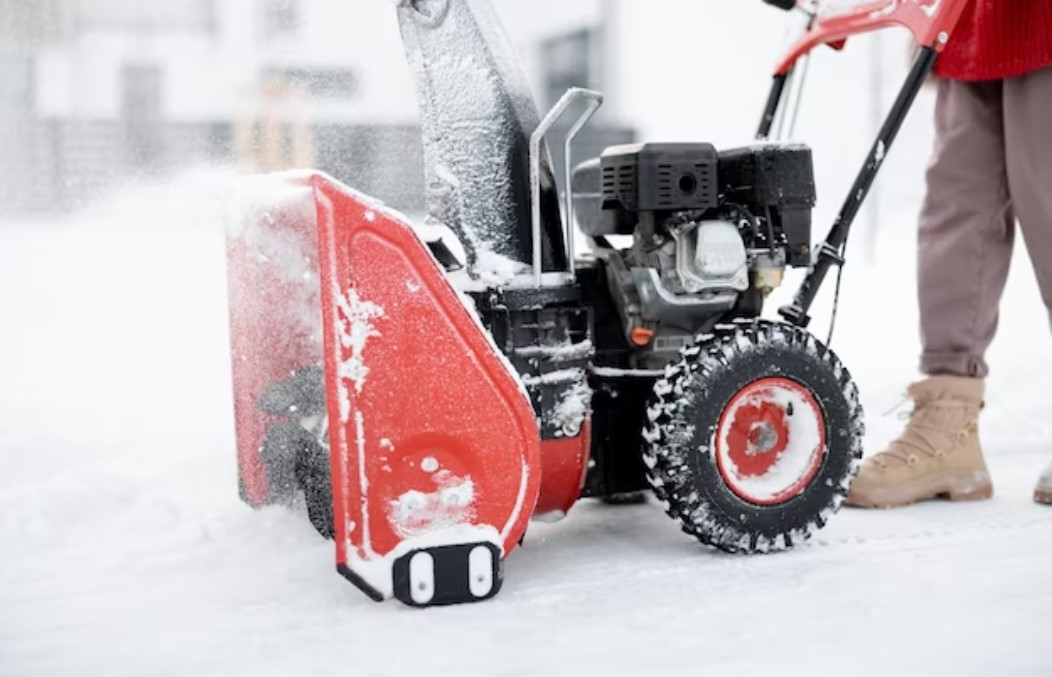
Distance Range & Usage Time
Gas snow blowers have the advantage of longer distance range and usage time. Their powerful engines enable them to handle larger areas and heavier snowfalls without the limitations of cord length or battery life. Electric snow blowers, on the other hand, are constrained by the length of their cords or the capacity of their batteries, which may require frequent recharging or repositioning.
Eco-Friendliness & Noise Pollution
In terms of eco-friendliness, electric snow blowers are the clear winners. They produce zero emissions at the point of use, contributing to a cleaner environment. Additionally, electric models are quieter compared to their gas counterparts, reducing noise pollution and minimizing disruption to both the operator and the surrounding neighborhood.
Max Depth Of Snow
Gas snow blowers typically have greater clearing capacity, allowing them to tackle deeper snow depths and heavier, wetter snow. They are better suited for larger snow removal tasks and regions prone to heavy snowfall. Electric snow blowers are better suited for light to moderate snowfall and may struggle with very deep or compacted snow.
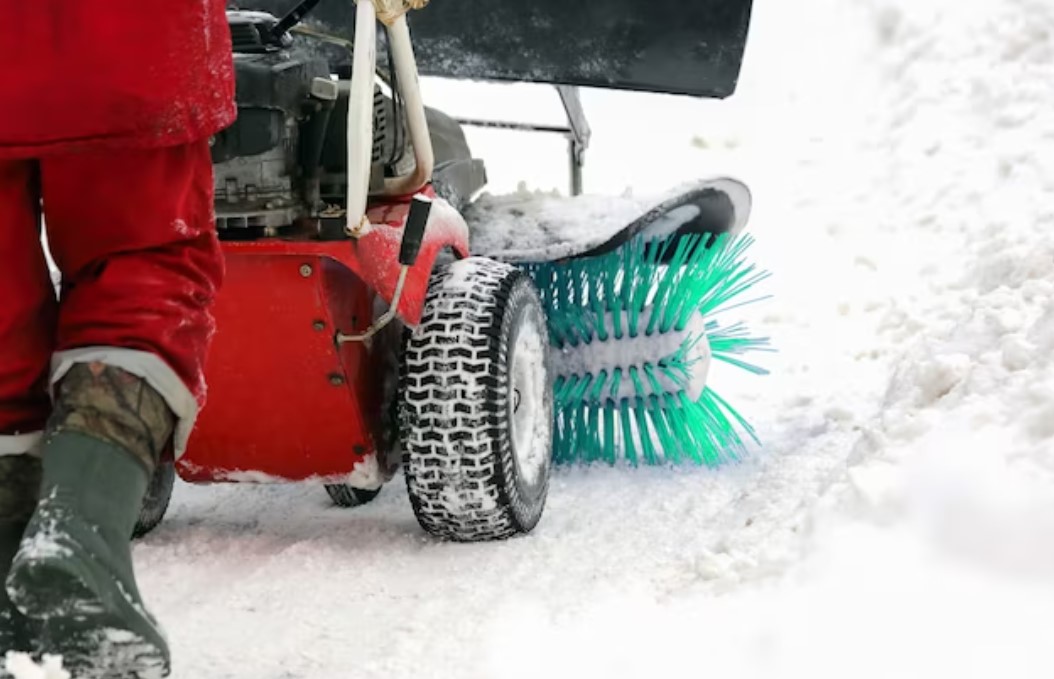
Clearing Speed (Intake Width & Height)
Both electric and gas snow blowers come in various sizes with different intake widths and heights. Gas snow blowers often offer larger intake sizes, enabling faster snow clearing in larger areas. Electric models may have narrower intake widths, which can lead to slightly longer clearing times for larger spaces.
Maintenance & Upkeep Costs
Gas-powered snow blowers typically require more maintenance than electric models. They need regular oil changes, fuel stabilization during storage, and occasional tune-ups. Electric snow blowers have lower maintenance requirements, as they don’t require oil changes or gas refills. However, electric models may have higher upfront costs due to their advanced technology and batteries.
Storage Requirements
Electric snow blowers are generally more compact and easier to store than their gas-powered counterparts. They don’t require fuel storage and are more space-efficient, making them ideal for homeowners with limited storage space.
Average Prices
Prices for snowblowers and electric snow shovels can range from $100 to more than $3,000.
It goes without saying that the more snow you’re attempting to remove, the larger machine you’ll need and the higher the expense. Here is a general cost breakdown to give you an idea of what you might anticipate to pay.
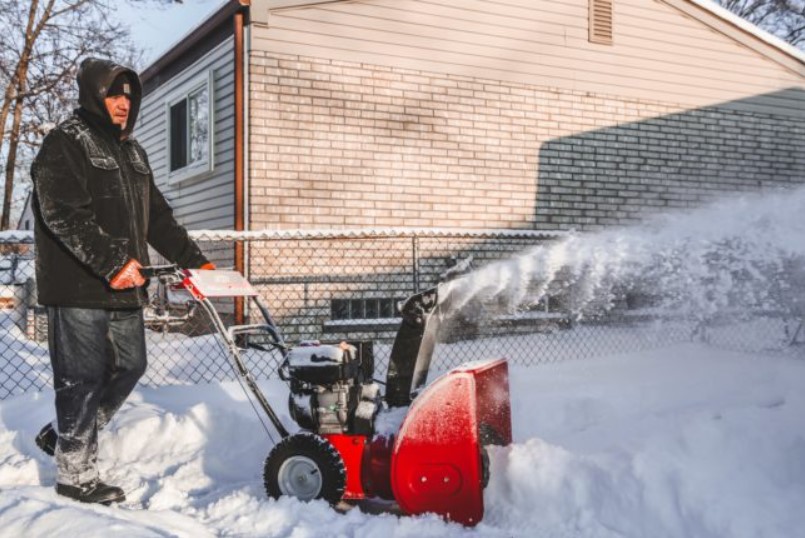
Average Costs and Prices for Electric Snow Blowers:
- Typically, a compact electric snow shovel (6 to 10 inches wide) costs between $100 and $300.
- The typical price range for a corded electric snow blower (18–21 inches wide) is $150–400.
- Typically, a cordless, battery-operated electric snow blower (18–21 inches wide) costs between $400 and $800.
- Without batteries, a two-stage electric cordless snow blower can cost well over $1500.
Cost and average prices for a gas snowblower:
- Typically, a single-stage gas snowblower (18–23 inches wide) costs between $400 and $650.
- Typically, a 24- to 30-inch broad two-stage gas snowblower costs between $800 and $2500.
Which Does It Better – Electric Vs Gas Snow Blower?
As winter arrives with its pristine beauty, it also brings the annual challenge of snow removal. With the array of snow blowers available, the decision between electric and gas-powered models becomes a pivotal one. To determine which does it better, let’s delve into a comparative analysis across keys.

Clearing Snow
When it comes to clearing snow, gas-powered snow blowers hold a distinct advantage. Their robust engines and auger systems are designed to handle heavy, deep snow with efficiency and speed. Gas snow blowers can effortlessly tackle compacted or wet snow, making them the preferred choice for regions prone to heavy snowfalls or areas with extensive snow accumulation.
Electric snow blowers, while effective in lighter snow conditions, might struggle with large snow depths or heavy snow types. Their clearing capacity may be limited by the power of the electric motor and the design of the auger system. Therefore, for more demanding snow-clearing tasks, gas-powered snow blowers tend to excel.
Ease of Use
In terms of ease of use, electric snow blowers have a distinct edge. They are generally lighter and more maneuverable, enabling a broader spectrum of users to use them. Electric models often feature convenient push-button starts, eliminating the hassle of pull-starting associated with gas blowers. This ease of use extends to maintenance as well, with electric models requiring fewer maintenance tasks, such as oil changes and fuel refills.
Gas snow blowers, while powerful, can be more challenging to handle, especially for individuals with limited physical strength. Their pull-start mechanism can be cumbersome, and the maintenance demands, including regular oil changes and fuel stabilization, might deter some users.
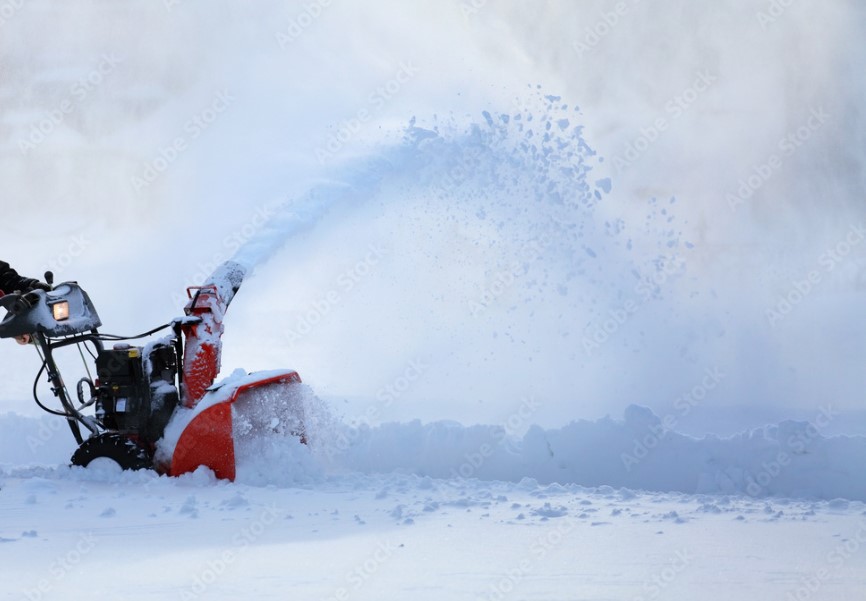
Durability
Gas-powered snow blowers are renowned for their durability and ruggedness. Their robust engines and heavy-duty construction are designed to withstand the harshest winter conditions and continuous use. Gas models can handle various types of snow and are built to last for years, making them a reliable choice for long-term snow removal needs.
Electric snow blowers, while durable in their own right, may have limitations in heavy-duty applications. The electric motors and plastic components might not be as resilient as the sturdy build of gas-powered counterparts. This could lead to potential wear and tear over time, especially under demanding snow removal conditions.
Eco-Friendliness
In the realm of eco-friendliness, electric snow blowers unquestionably take the lead. With zero emissions at the point of use, electric models contribute to a cleaner environment by reducing air pollution. They are also quieter, minimizing noise pollution and promoting a more peaceful snow removal process.
Gas snow blowers, in contrast, emit exhaust fumes and noise, contributing to both air and noise pollution. Their impact on the environment is notably greater, aligning electric snow blowers with a more sustainable and eco-conscious approach.
Area Size and Terrain
The suitability of electric vs gas snow blowers for different area sizes and terrains is an essential consideration. Gas-powered snow blowers, with their robust engines and wider clearing widths, are better equipped for larger areas and more demanding terrains. They excel in commercial settings or properties with extensive driveways and pathways.
Electric snow blowers are better suited for smaller to medium-sized areas with lighter snow accumulation. They are particularly well-suited for residential use, where maneuverability and ease of use are paramount. Their compact size and quieter operation make them ideal for navigating around obstacles and tight spaces.

When To Use an Electric Snow Blower?
When you don’t have a lot of money to spend or only need to clear a small area, electric snow blowers are the ideal solution. If you don’t mind spending more time outside, electric snow blowers can even handle heavy-duty tasks and will almost always be quicker or at least easier than shoveling. You’ll develop a method for controlling the power cable after using it for a few seasons, so there shouldn’t be any issues.
When To Use a Gas Snow Blower?
A gas snow blower is best utilized when confronting heavy snowfall and challenging conditions. Its powerful engine and sturdy construction make it ideal for larger areas, commercial properties, and tough terrains. When faced with deep snow depths, compacted snow, or extensive snow accumulation, a gas snow blower’s robust performance and durability shine, making it the preferred choice for efficient and effective snow removal in demanding winter scenarios.

FAQs
Are electric snow blowers as effective as gas snow blowers in heavy snow?
Electric snow blowers are generally not as effective as gas snow blowers in heavy snow conditions. Gas models are equipped with more powerful engines and robust auger systems that can handle larger snow depths and heavier accumulations. While electric snow blowers can work well in light to moderate snowfall, their limitations become apparent in more demanding snow-clearing tasks, where gas snow blowers tend to excel.
Do electric snow blowers have cords?
Yes, many electric snow blowers are corded, meaning they need to be plugged into an electrical outlet during operation. This can limit their maneuverability and distance range based on the length of the cord. However, there are also cordless electric snow blowers available that operate on rechargeable batteries, offering greater mobility and flexibility during use.
Are gas snow blowers harder to maintain than electric ones?
Yes, gas snow blowers generally require more maintenance compared to electric models. Gas-powered snow blowers need regular oil changes, fuel stabilization during storage, and occasional tune-ups to keep them running smoothly. On the other hand, electric snow blowers have fewer maintenance requirements since they don’t require oil changes or fuel refills. They also have fewer moving parts that might require servicing.
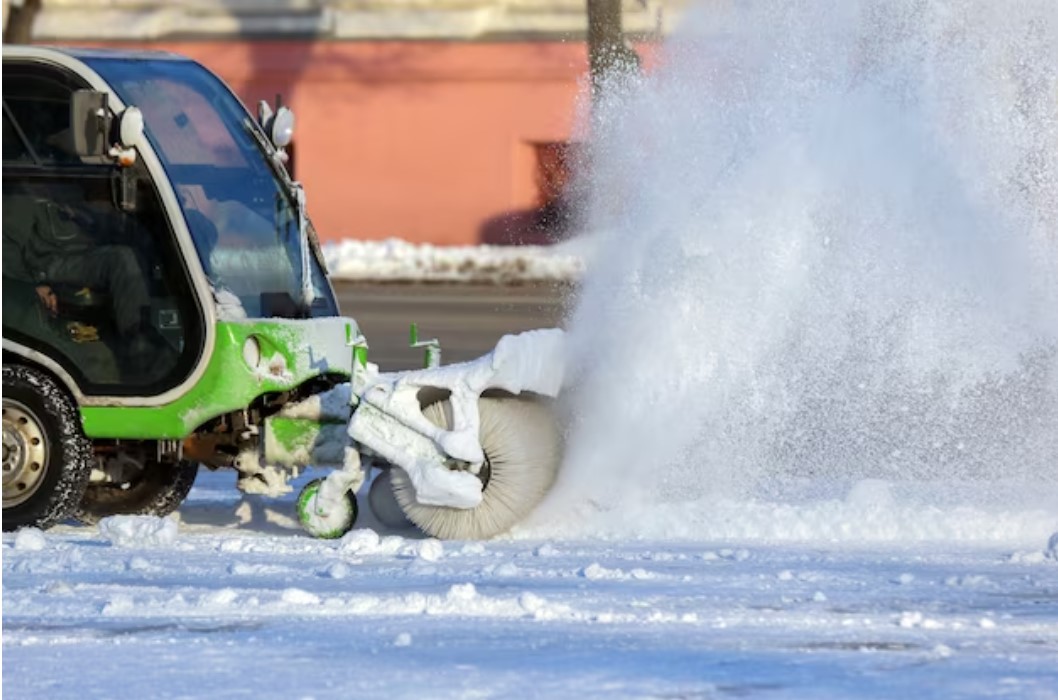
Are gas snow blowers harder to start in cold weather?
Yes, gas snow blowers can be harder to start in extremely cold weather, especially if they have been sitting unused for an extended period.The engine’s performance may be impacted by cold weather, which also makes using the pull-start system more difficult. Some gas snow blowers come with features like electric starters or priming mechanisms that can help improve cold-weather starting, but they may still require more effort compared to electric models, which often have push-button starts.
Conclusion
The electric and gas snow blowers are both practical appliances that significantly outperform the snow shovel. We believe that a gas-powered snow blower will be most advantageous to the majority of consumers. Understanding the nuances presented by Electric vs Gas Snow Blower: Choosing the Best Option for Winter Snow Removal ensures a well-informed decision tailored to individual needs and guarantees efficient, hassle-free snow clearance throughout the winter months.
Related Articles